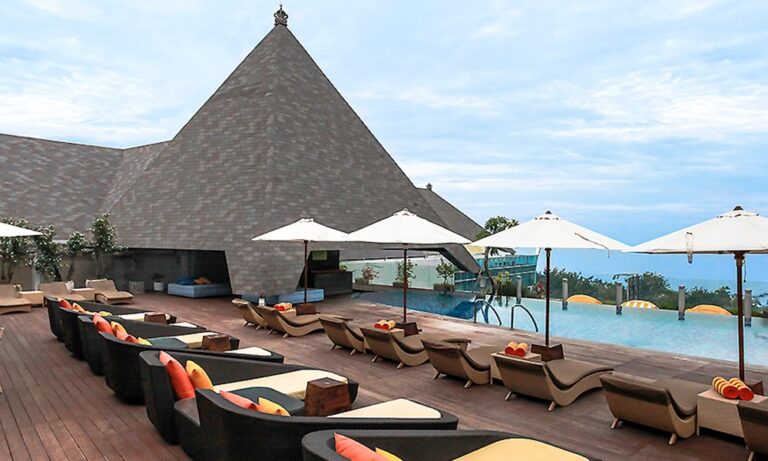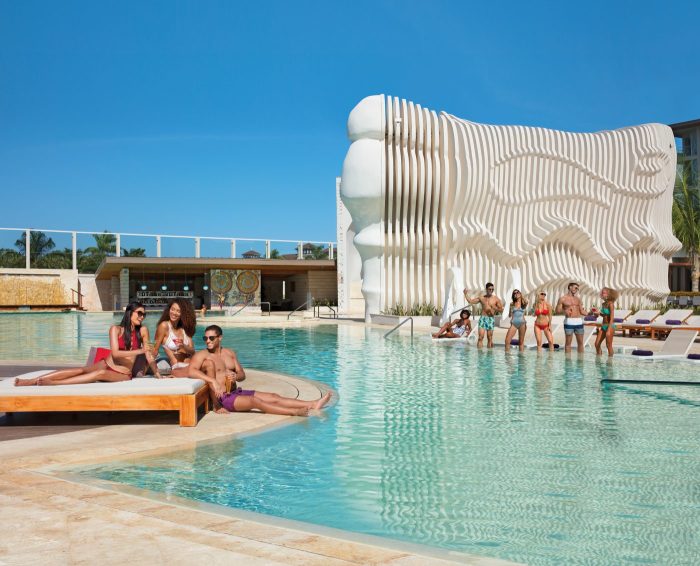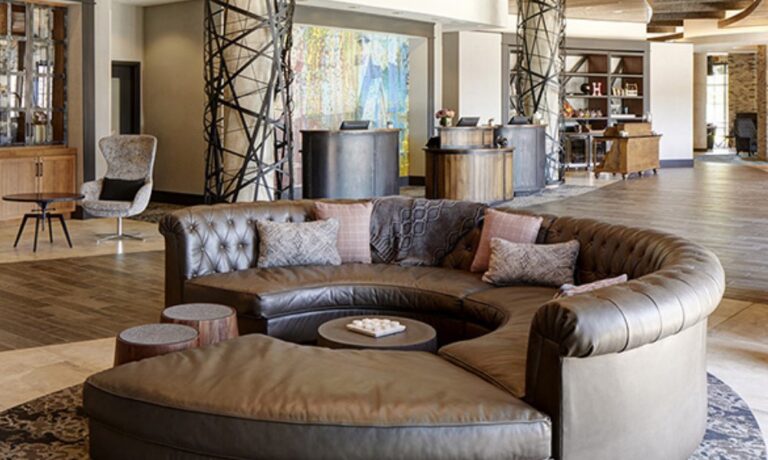Hotels With Vr Experiences And Smart Room Controls
Hotels with VR Experiences and Smart Room Controls are changing the way we experience hospitality. Imagine stepping into a hotel room where you can not only adjust the lighting with a simple voice command but also immerse yourself in a virtual tour of local attractions before even stepping outside. This blend of technology aims to enhance guest satisfaction, making stays more memorable and personalized.
The integration of virtual reality and smart controls in hotels is not just a trend; it’s a revolution in the hospitality industry. As hotels embrace these innovations, guests can enjoy unique virtual experiences while benefiting from the comfort and convenience that smart technology provides. Statistics indicate a growing adoption of these technologies, paving the way for a new standard in guest services.
Introduction to Hotels with VR Experiences and Smart Room Controls
As technology continues to transform the hospitality industry, hotels are increasingly adopting innovative solutions to enhance guest experiences. One such advancement is the incorporation of Virtual Reality (VR) experiences, which allow guests to immerse themselves in unique environments and services before they even check in. These experiences, combined with smart room controls, are revolutionizing the way visitors interact with their surroundings, providing convenience, comfort, and a touch of luxury that caters to modern expectations.The integration of smart room controls in hotels enables guests to personalize their environment at the touch of a button or through voice commands.
From adjusting lighting and temperature to controlling entertainment systems, these features elevate the guest experience by offering tailored comfort. The combination of VR and smart technology not only enhances satisfaction but also streamlines hotel operations. According to a recent study, 70% of travelers show interest in hotels that offer smart technology, and 46% appreciate VR experiences that allow them to explore the hotel or destination prior to arrival.
Benefits of VR Experiences in Hotels
The introduction of VR in hotels provides numerous advantages that enhance the overall guest experience. Guests can explore hotel facilities, amenities, and local attractions through immersive virtual tours, allowing them to make informed decisions about their stay. This technology not only captivates guests but also serves as a marketing tool for hotels to showcase their offerings.Key benefits include:
- Enhanced Engagement: Virtual reality captures the imagination of guests, making their experience memorable and increasing the likelihood of repeat visits.
- Informed Decision-Making: By experiencing hotel amenities and surroundings virtually, guests can choose accommodations that best suit their preferences.
- Unique Marketing Opportunities: Hotels can leverage VR to create captivating promotional content, attracting potential visitors through engaging storytelling.
“VR experiences turn the ordinary into the extraordinary, making every stay feel unique and special.”
Advantages of Smart Room Controls
Smart room controls have become a staple in modern hospitality, providing an array of features that enhance the guest experience. These controls allow guests to manage their environment easily, leading to increased satisfaction and comfort during their stay.Several advantages of smart room controls include:
- Convenience: Guests can control various aspects of their room, such as lighting, temperature, and entertainment, using their smartphones or voice commands.
- Energy Efficiency: Smart technology helps hotels reduce energy consumption through automated systems, contributing to sustainability efforts.
- Enhanced Security: Smart locks and surveillance systems provide an additional layer of security, ensuring guests feel safe during their stay.
“Smart room controls not only provide comfort but also contribute to a more sustainable and secure hospitality experience.”
Trends in VR and Smart Technology Adoption
The hospitality industry is witnessing a significant shift with increased adoption of VR and smart technologies. This trend is driven by evolving customer expectations and technological advancements, leading to a more connected and personalized guest experience.Current trends include:
- Increased Investment: Hotels are investing in VR technology and smart room systems to differentiate themselves in a competitive market.
- Guest-Centric Innovations: Properties are designing unique VR experiences that cater to diverse interests, enhancing satisfaction and engagement.
- Integration of IoT: The Internet of Things (IoT) is allowing for seamless connections between devices, making smart controls more user-friendly and efficient.
“Embracing technology is no longer optional; it has become essential for hotels striving to meet the demands of modern travelers.”
Benefits of VR Experiences in Hotels
The integration of Virtual Reality (VR) technology in hotels is revolutionizing the way guests interact with their surroundings. VR experiences are not just a novelty; they enrich the overall hotel experience, creating lasting memories and enhancing customer satisfaction. By immersing guests in engaging environments, hotels can elevate their offerings and foster deeper connections with their clientele.One of the key advantages of VR in hotels is the ability to engage guests in a way that traditional methods cannot.
With VR, guests can explore their accommodations, local attractions, and even participate in unique experiences right from the comfort of their rooms. This technology provides a sense of excitement and discovery, ultimately leading to improved guest satisfaction.
Unique VR Experiences Offered by Hotels
Many hotels around the globe are embracing VR technology in innovative ways. These experiences not only delight guests but also set the hotels apart from their competitors. Here are some notable examples:
- The Conrad Hilton in New York City: This luxury hotel offers guests the opportunity to use VR headsets to take virtual tours of its luxurious suites, allowing them to explore different room styles before making a booking.
- The Four Seasons in Denver: Guests can experience a VR ski simulation that transports them to the slopes of nearby mountains, giving them a taste of the activities available before they’d even step outside.
- The Le Meridien in Malaysia: This hotel features a VR experience that showcases local cultural events and culinary classes, allowing guests to immerse themselves in Malaysian heritage.
- The Marriott in London: The hotel provides a VR tour of various iconic landmarks in the city, encouraging guests to discover local attractions and plan their adventures.
These examples illustrate how hotels are leveraging VR to create unique and memorable experiences, enhancing guest engagement with their brand.
Promoting Local Attractions and Events
VR technology holds incredible potential in promoting local attractions and events to hotel guests. By providing immersive previews of nearby landmarks and activities, hotels can stimulate interest and encourage exploration. This method benefits both the guests and the local economy, as it generates excitement about the surrounding area.For instance, hotels can offer VR tours that highlight local festivals, culinary experiences, or historical sites.
Such experiences can include virtual walkthroughs of art galleries, historical landmarks, or even local concerts. This not only informs guests but inspires them to participate in activities they may not have considered otherwise.
“Through VR, hotels can act as gateways to the local culture, enhancing the guest experience while supporting local communities.”
This integration of VR in promoting local attractions can lead to increased visitor numbers at these sites, fostering a sense of connection between guests and the destination. By enhancing the awareness of local events and activities, hotels can create a more enriching travel experience, ensuring guests leave with cherished memories and a desire to return.
Smart Room Controls
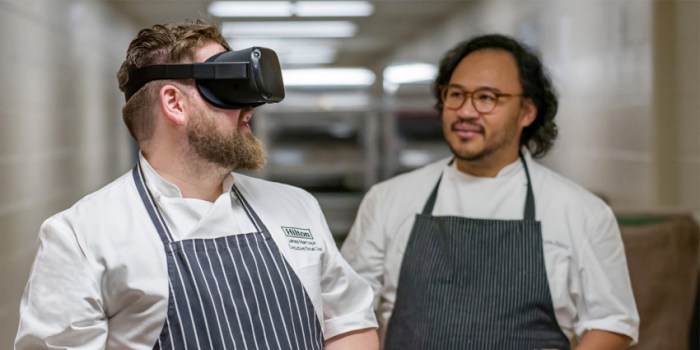
Source: xrtoday.com
Smart room controls represent a significant advancement in hotel technology, enhancing the guest experience through intuitive management of room environments. These systems allow guests to personalize their stay with ease, creating a more comfortable and enjoyable atmosphere. As hotels adopt smart technology, they also embrace a smarter approach to operations, sustainability, and user-friendliness.Common features of smart room controls include lighting systems, temperature regulation, and multimedia entertainment options.
These elements are integrated into a single platform, allowing guests to manage their surroundings with just a few taps on a smartphone or tablet.
Common Features of Smart Room Controls
Smart room controls offer numerous features that enhance the guest experience while also promoting energy efficiency. Some key features include:
- Automated Lighting: Guests can adjust lighting levels or set moods with easy presets, enhancing comfort while saving energy through automatic shutdown when rooms are unoccupied.
- Temperature Control: Smart thermostats allow for precise temperature adjustments based on personal preferences, and can even learn habits to optimize energy use.
- Entertainment Systems: Integration with streaming services and smart TVs gives guests access to their favorite content, ensuring a seamless entertainment experience.
- Voice Control: Many systems utilize voice recognition technology, enabling guests to make requests without needing to use physical controls, which is especially helpful for individuals with disabilities.
- Mobile App Control: Guests can manage all aspects of their room environment through a dedicated app, providing convenience and personalization at their fingertips.
The comparative analysis of traditional room controls versus smart technology highlights the remarkable user-friendliness and efficiency of smart systems. Traditional systems often require manual adjustments, leading to potential discomfort and energy waste. In contrast, smart controls enable immediate personalized settings, which contribute to a more enjoyable stay.
Energy Savings and Sustainability
Smart room controls play a pivotal role in promoting sustainability within the hospitality industry. By optimizing energy consumption, hotels can reduce their environmental footprint and operational costs. The benefits include:
- Reduced Energy Waste: Smart systems can detect when a room is unoccupied and automatically adjust lighting and temperature accordingly, leading to significant energy savings.
- Real-time Monitoring: Hotels can monitor energy usage in real time, allowing for more efficient management and identification of areas for improvement.
- Guest Engagement: Informing guests about their energy consumption and encouraging responsible usage fosters a culture of sustainability.
- Integration with Renewable Energy Sources: Smart controls can be programmed to utilize energy from renewable sources when available, further decreasing reliance on traditional energy grids.
By embracing smart technology, hotels not only enhance guest comfort but also demonstrate a commitment to sustainability, creating a win-win situation for both patrons and the planet.
Case Studies of Hotels Implementing VR and Smart Controls
As the hospitality industry evolves, various hotels have embraced cutting-edge technologies like virtual reality (VR) and smart room controls. This integration not only enhances guest experiences but also streamlines hotel operations. Let’s explore some notable examples of hotels that have successfully implemented these innovative technologies.
Notable Hotels Implementing VR and Smart Controls
Several hotels stand out for their effective integration of VR experiences and smart room controls, transforming the way guests interact with their accommodations.
- The Hilton at Universal Orlando: This hotel introduced a VR concierge service that allows guests to explore amenities and local attractions through a virtual experience. Guests can immerse themselves in the resort’s offerings before even stepping outside their rooms.
- The Marriott Marquis in San Francisco: This hotel features smart room controls that guests can operate via their smartphones. From adjusting room temperature to controlling lighting, this technology allows for a personalized stay. Their VR experiences include virtual tours of the hotel’s facilities and nearby attractions, enhancing the planning stages of their visit.
- The Meliá Hotels International: Meliá has implemented VR headsets in some of their locations, offering virtual tours of their luxurious suites and amenities. This approach aids in marketing and allows potential guests to experience the hotel before booking, leading to higher customer engagement.
Technologies Used and Impact on Operations
The technologies employed in these hotels significantly impact their operational efficiency and guest satisfaction.
- Virtual Reality Headsets: Hotels utilize VR headsets to create immersive experiences, enabling guests to explore the property and nearby attractions. This has proven to increase bookings as guests can visualize their stay beforehand.
- Smart Room Controls: The integration of IoT (Internet of Things) technology allows for effortless control of room environments. Guests can manage lighting, temperature, and entertainment systems through mobile apps or voice commands, increasing comfort and convenience.
- Data Analytics: Hotels are leveraging data collected from smart controls to gain insights into guest preferences and behaviors. This information helps in refining services, enhancing the overall guest experience, and improving operational efficiency.
Guest Feedback and Reviews
Guest feedback has been overwhelmingly positive regarding the use of VR and smart controls, significantly enhancing their overall stay experience.
- Increased Convenience: Many guests appreciate the ability to control room settings via mobile apps, often mentioning it in reviews as a game-changer for comfort during their stay.
- Enhanced Experience: Guests have shared their excitement about the VR tours, noting how it helped them make informed choices about where to dine or what activities to engage in during their visit.
- Tech-Savvy Appeal: Younger travelers express a particular fondness for technologically advanced hotels, stating that these innovations make their experience feel more modern and engaging.
“Hotels that embrace technology not only enhance guest satisfaction but also set themselves apart in a competitive market.”
Future Trends in Hotel Technology
The evolution of technology in the hotel industry continues to create opportunities for enhanced guest experiences and operational efficiencies. As we look to the future, it is essential to understand the emerging trends that will shape the way hotels operate and engage with their guests, particularly concerning virtual reality (VR) and smart room technologies.Anticipating future trends helps hotel operators and developers prepare for the changing landscape.
With advancements in technology, the integration of VR and smart controls will become increasingly sophisticated. Here are some key trends expected to influence the hotel industry in the coming decade:
Emerging VR and Smart Technology Trends
The following table highlights the current technologies in hotels compared to those expected to develop over the next ten years. This comparison showcases the anticipated enhancements and innovations that will redefine guest experiences.
| Current Technologies | Future Technologies (Next Decade) |
|---|---|
| Basic VR tour applications | Immersive VR experiences with interactive features and gamification |
| Smart lighting controls | AI-driven lighting that adapts to guest preferences and moods |
| Mobile check-in/check-out | Seamless biometric check-in using facial recognition |
| Voice-activated room controls | Integrated AI assistants that learn and predict guest preferences |
| Basic connectivity options | Hyper-speed internet with support for AR/VR applications |
The integration of artificial intelligence plays a pivotal role in enhancing both VR and smart room experiences. AI systems are expected to analyze vast amounts of data to personalize guest interactions and create tailored experiences. For instance, AI can track guest routines and preferences, adjusting room settings accordingly, such as temperature, lighting, and entertainment options. Additionally, AI-powered chatbots will provide 24/7 customer service, delivering instant responses to guest inquiries, thus enriching the overall customer experience.
The potential for AI to facilitate learning and adaptation means that hotels will be able to refine their offerings continually, ensuring that each visitor enjoys a unique, memorable stay.In summary, the future of hotel technology promises significant advancements in VR and smart room controls. These developments will not only enhance guest satisfaction but will also streamline operations, leading to a more efficient hospitality industry.
Challenges and Considerations
The integration of Virtual Reality (VR) experiences and smart room controls in hotels brings exciting opportunities but also significant challenges. As the hospitality industry embraces these technologies, it is crucial to address potential hurdles to ensure successful implementation and guest satisfaction. Understanding these challenges allows hotels to create effective strategies that enhance the guest experience while managing operational complexities.Implementing VR and smart room technologies can be daunting for hotels due to various factors including financial constraints, staff training requirements, and the need for ongoing maintenance.
Additionally, integrating such advanced technologies into existing infrastructures often encounters compatibility issues. These challenges can be mitigated with thoughtful planning and execution.
Financial Investment and Budgeting
The initial costs associated with adopting VR and smart room technologies can be considerable. Hotels must allocate budget for hardware, software, and installation, which can strain financial resources. To manage these costs, hotels can consider the following strategies:
- Prioritize Investments: Focus on implementing technologies that provide the greatest return on investment, such as VR experiences that enhance guest engagement.
- Seek Partnerships: Collaborate with technology providers or seek partnerships that offer funding options or discounted services for early adopters.
- Phased Implementation: Gradually introduce technologies, starting with pilot programs that allow hotels to evaluate effectiveness before full-scale deployment.
Staff Training and Adaptation
Training staff to effectively use and maintain new technologies is essential. Resistance to change can arise, and inadequate training can lead to poor service delivery. To overcome this challenge, hotels should prioritize comprehensive training programs. Some effective approaches include:
- Interactive Training Sessions: Conduct hands-on workshops to familiarize staff with VR equipment and smart controls, ensuring they feel confident in using the technology.
- Ongoing Support: Provide continuous support and resources, such as online tutorials or a dedicated helpdesk, to assist staff as they adapt to the new systems.
- Feedback Mechanisms: Establish channels for staff to share experiences and suggest improvements, fostering a culture of collaboration and innovation.
Security and Privacy Concerns
Smart technologies often collect and process sensitive guest information, raising concerns about security and privacy. Hotels must implement robust security measures to protect this data. Effective strategies include:
- Data Encryption: Use advanced encryption technologies to safeguard sensitive information transmitted between devices and systems.
- Regular Security Audits: Conduct frequent security assessments to identify vulnerabilities and ensure compliance with industry standards.
- Transparent Privacy Policies: Clearly communicate privacy policies to guests, informing them about data collection practices and how their information is used.
“Embracing technology in hospitality is not just about innovation; it’s about ensuring a secure and enriching experience for every guest.”
By proactively addressing these challenges, hotels can leverage VR and smart room controls to enhance both operational efficiency and guest satisfaction, paving the way for a future defined by technological excellence.
The Role of Customer Feedback
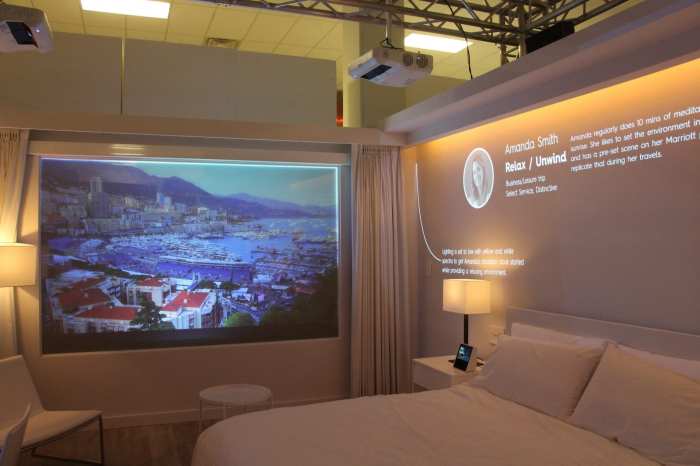
Source: cornell.edu
Gathering and analyzing customer feedback is essential for hotels looking to enhance their VR experiences and smart room controls. As technology evolves, guest expectations also change, making it imperative for hotels to stay attuned to their patrons’ voices. By effectively collecting feedback, hotels can ensure they meet and exceed guest satisfaction, ultimately driving loyalty and repeat visits.Feedback can be collected through various methods such as surveys, online reviews, and direct guest interactions.
Surveys can be deployed via email or through hotel apps, designed to capture specific insights regarding the use and functionality of VR experiences and smart room controls. Online reviews on platforms such as TripAdvisor or Google provide a wealth of information, reflecting guests’ perceptions and experiences. Direct interactions, like post-stay follow-ups or feedback kiosks in hotel lobbies, offer immediate impressions that can be invaluable.
Methods for Collecting and Analyzing Guest Feedback
Hotels employ a range of methods to gather feedback about their technological offerings. Each method has its strengths, providing unique insights into guest experiences:
- Surveys: Tailored questionnaires can focus on specific aspects of VR experiences and smart room controls, helping hotels gauge satisfaction levels and identify areas for improvement.
- Online Reviews: Monitoring platforms like TripAdvisor and Yelp enables hotels to engage with guests and respond to feedback, fostering a relationship that encourages further input.
- Social Media: Engaging with guests on platforms like Instagram and Facebook allows hotels to capture unfiltered opinions and insights about their services.
- Direct Feedback: Conversations at the front desk or follow-up calls post-stay provide immediate, actionable insights into guest experiences.
Hotels that actively analyze feedback can implement changes that resonate with guests. For instance, a hotel chain that received consistent comments about slow VR system performance conducted a comprehensive review of its technology and upgraded its systems, resulting in increased guest satisfaction ratings.
Key Metrics to Track for Measuring Success
To effectively measure the success of their VR experiences and smart room controls, hotels should focus on tracking specific metrics that reflect guest satisfaction, engagement, and operational effectiveness. These metrics will help ensure that the investments made in technology yield positive results.
- Guest Satisfaction Scores: Overall ratings from feedback surveys can indicate how well guests perceive the technology offerings.
- Usage Rates: Tracking how often VR experiences and smart controls are utilized helps assess their popularity and effectiveness.
- Net Promoter Score (NPS): This score measures guest willingness to recommend the hotel, which can be influenced by their experience with technology.
- Operational Efficiency: Analyzing the impact of smart room controls on energy savings and maintenance costs provides insight into the technology’s overall value.
By focusing on these metrics, hotels can gain a clearer picture of their performance in integrating technology into the guest experience, allowing for data-driven decisions that enhance guest satisfaction.
Conclusion and Call to Action
The integration of Virtual Reality (VR) experiences and smart room controls in hotels represents a pivotal shift in how hospitality services are delivered. By embracing these advanced technologies, hotels can significantly enhance guest satisfaction, streamline operations, and create memorable experiences that set them apart from the competition. As we have discussed, the benefits associated with VR and smart controls not only elevate the guest experience but also empower staff to provide tailored services.Hoteliers are encouraged to adopt innovative technologies to reimagine what guest experiences can be.
The ability to offer immersive virtual tours, personalized room settings, and seamless interaction with hotel services can transform a standard stay into a unique journey. The incorporation of VR can create engaging promotional content that attracts new customers, while smart controls ensure that guests feel at home, regardless of their location.
Importance of Ongoing Staff Training
To maximize the potential of VR experiences and smart room controls, it is crucial for hotel staff to receive ongoing training. This training focuses not only on the technical aspects of these technologies but also on how to effectively communicate their benefits to guests. Knowledgeable staff can help demystify these innovations, offering demonstrations and assistance as needed. Additionally, a well-trained team can gather valuable feedback from guests on their experiences with these technologies.
This feedback is essential for continuous improvement and can lead to further enhancements in the guest experience. Establishing a culture of learning and adaptation within hotel staff ensures that they remain confident and capable in using these tools to their fullest potential.By investing in training and embracing new technologies, hotels position themselves at the forefront of the hospitality industry, ready to meet the evolving expectations of modern travelers.
Closing Summary

Source: revfine.com
In conclusion, the marriage of VR experiences and smart room controls is reshaping the landscape of hospitality. These advancements not only elevate guest enjoyment but also streamline hotel operations, making them more efficient and sustainable. As the industry continues to evolve, embracing these technologies will be key for hoteliers looking to stand out and deliver unforgettable experiences to their guests.
Essential Questionnaire
What are VR experiences in hotels?
VR experiences in hotels allow guests to access immersive virtual environments, enhancing their stay with interactive activities and virtual tours.
How do smart room controls work?
Smart room controls use technology to enable guests to manage aspects like lighting, temperature, and entertainment through apps or voice commands.
Are there privacy concerns with smart room technologies?
Yes, there can be privacy concerns, but hotels typically implement security measures to protect guest data and ensure privacy.
Can VR experiences help local tourism?
Absolutely! VR can promote local attractions, giving guests a taste of nearby experiences before they explore in person.
How can hotels get feedback on these technologies?
Hotels can collect feedback through surveys, social media, or direct guest interactions to understand their satisfaction with VR and smart controls.
What is the future of technology in hotels?
The future includes more advanced AI integration, enhanced virtual experiences, and increased automation for a more seamless guest experience.
